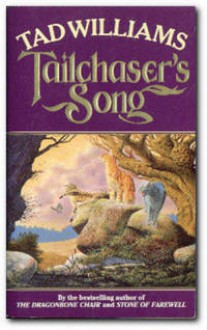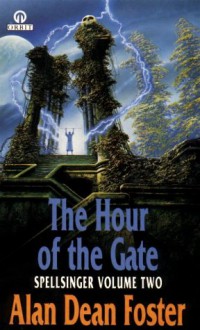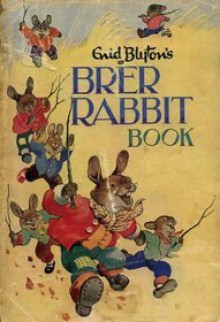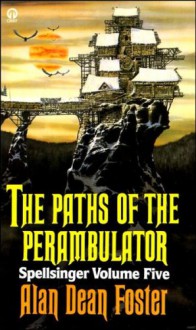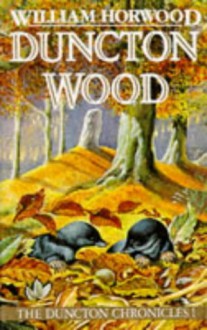
There are some books out there that it doesn’t matter how long they are, the story is really engrossing and I really don’t want to put them down. However there are other books that start off good but are so long that by the time I start getting close to the end my eyes start glasing over and I quickly begin to lose interest. Then there are books that are basically crap. Well, this isn’t one of the last type of books, and this certainly isn’t one of the first type of books so I guess it falls into the category of being too long. Actually, one of the major flaws that I did find in this book was not so much that it was too long but rather that it contained two distinct stories and thus it could have worked much better, and been much more interesting, if Horwood has divided it into two books. Mind you, I also have books two, three, and four on my bookshelves which makes me wonder if I am ever going to get around to reading them, or whether they are going to be tossed out at the next Church Fete – we will see.
Another thing about this book is that the author seems to be using the same method that was first used in Watership Downs, though I had no idea that this was going to be the case until I started reading the book. I don’t guess that is generally a problem but it does feel like somebody is simply trying to copy an idea that was originally quite successful. Actually, it does tend to be pretty hard to be original these days, especially when there are so many influences that are going to go into your writing. However, I guess the originality comes out in how you produce your writings, and if you let your own personality and style dictate your work as opposed to simply copying something else. In fact, it does become pretty obvious when a work is forced, particularly where the author isn’t writing for the love of writing, but simply writing because they see it as an easy way of making lots of money (hint: it isn’t).
So, Duncton Wood is a story about moles, though it is more than just a story it is more of an epic. However, as I suggested, it is actually two stories in one. The first half of the book is about this nation (or system as the book calls it) of moles who live in Duncton Wood (which apparently is somewhere around Oxford). It sets up our two main characters – Brachen and Rebecca – and tells us that it is a love story. Then it introduces the antagonist, a mole named Mandrake, who is actually a pretty big mole that came into the system from afar and pretty much took over. However, he didn’t just take over but he also destroyed the religion of the moles as well by preventing them from worshiping at the stone and killing anybody who knew the sacred chants. Except that Brachen was taught these chants and managed to survive and escaped into ancient tunnels to prepare and eventually emerge. So, the two stories are thus: defeating Mandrake and freeing the systems; and then going on a quest to restore the religious beliefs of the moles in Duncton Wood.
Religion actually plays a central role in the book, namely because we have Mandrake coming along and dominating the system by destroying the religion and then ruling through brute force. Then we have Brachen go off on a quest to restore the religious rites that Mandrake had destroyed. Furthermore, to emphasise the religious nature of the story, we even have the protagonists let one of the antagonists go free, namely because they do not see a reason to kill him, but also because the antagonist (who isn’t Mandrake by the way but one of his lieutenants), has become such a pathetic individual that killing him will simply make them no better than him.
The whole thing about Mandrake dominating the system is an interesting one and he does it namely because he can – he has the power and because he has the power he basically uses it. However, he has a weakness and that is that he hates all religion and actually goes out of his way to basically destroy all aspects of it. Okay, since the religion is based around a standing stone that is located in the middle of the forest, and even Mandrake isn’t that powerful to destroy the stone, there is always going to be a reminder of the religion to the moles, but since Mandrake has ordered the death of all the priests then memories of the specifics start to fade. Mind you, Mandrake also forbids moles from traveling outside, which means that even the sight of the stone becomes a myth.
This is another key theme of the story – how time creates myths. By destroying all semblance of the religion means that everybody (or everymole as it is written) forgets the tenants of the religion, which means that in the end Mandrake is the one that they all look up to – he is the biggest and the strongest. However, there must be some sort of issue with his self-esteem if he has to do all of this. Despite being the biggest, and the strongest, he has to destroy any rivals, and religion is a big rival to any dictator, and put himself to replace this. The other aspect of time creating myth is when Bracken goes off on his journey, and he is gone for so long that people begin to forget about him, not so much that they don’t believe he existed, but rather that he takes on some form of mythological aspect.
Mind you, we are looking at a fairly primitive society here where even the ability to write and record the past generally doesn’t exist (though we are told about scribe moles, and yes, while they are moles they are also written as if they were sentient beings). In such societies mythologies develop much more often than does one in a society like ours where pretty much everything is recorded. Even then, as time starts to intervene, the past does become more and more of a distant memory, though we are much more able to record those memories than the past. However, to me, a memory is much stronger, and more valuable, than a photograph ever will be because there are just things that a photograph simply cannot catch.

 Log in with Facebook
Log in with Facebook 
